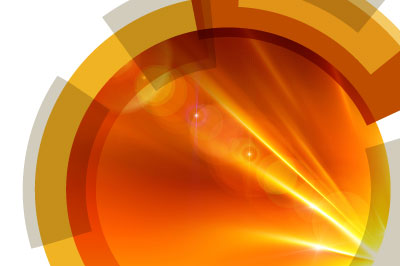22.09-28.09.2024
Mülheim Chemistry Campus, Germany
MPI for Chemical Energy Conversion & MPI für Kohlenforschung
What topics will be covered in this Summer School?
The summer school will combine a series of lectures with practical computational sessions and laboratory visits. The lectures will address a broad range of topics related to spectroscopy and computational chemistry. The practical sessions will be focused both on fundamental pen-and-paper problems and on the use of computational tools for spectroscopic simulations and for quantum chemical calculations. Significant emphasis will be placed on the use of the ORCA package for quantum chemical calculations of spectroscopic properties. Small groups of students will also be able to visit the spectroscopy laboratories of the participating Max Planck Institutes.
List of lectures:
Raman, UV-Vis RFQ/Stopped Flow, X-ray spectroscopy Labs, SQUID, MCD, Mössbauer, EPR Labs.
Who is this school for?
The school combines teaching at an advanced level on spectroscopic methods of relevance to molecular transition metal complexes, with instruction on how to employ ORCA as the quantum chemical software to compute relevant spectroscopic parameters from first principles. The candidates must be interested in both aspects and in their combination. This point should come across clearly from the motivation letter (see below).
Candidates who are primarily interested only in spectroscopy or only in quantum chemistry will be better served by other workshops that focus on each one of these aspects separately. Note that the school deals exclusively with molecular chemistry. Materials science and heterogeneous systems are not addressed.
What are the requirements for participation?
The students should already be familiar with the fundamentals of transition metal and coordination chemistry, spectroscopy, and quantum chemistry at an advanced undergraduate level. Familiarity with the basic working practices of computational chemistry is required.
Mülheim Chemistry Campus, Germany
MPI for Chemical Energy Conversion & MPI für Kohlenforschung
What topics will be covered in this Summer School?
The summer school will combine a series of lectures with practical computational sessions and laboratory visits. The lectures will address a broad range of topics related to spectroscopy and computational chemistry. The practical sessions will be focused both on fundamental pen-and-paper problems and on the use of computational tools for spectroscopic simulations and for quantum chemical calculations. Significant emphasis will be placed on the use of the ORCA package for quantum chemical calculations of spectroscopic properties. Small groups of students will also be able to visit the spectroscopy laboratories of the participating Max Planck Institutes.
List of lectures:
- Introduction to Computational Chemistry (Dimitrios Pantazis)
- Introduction to ORCA (Frank Wennmohs)
- Group Theory (Serena DeBeer)
- Ligand Field Theory (Serena DeBeer)
- Optical Spectroscopy (Frank Neese)
- X-ray Spectroscopy (Serena DeBeer)
- Vibrational Spectroscopy (Maurice van Gastel)
- Spin Hamiltonians (Frank Neese)
- Magnetochemistry (Daniel SantaLucia)
- EPR Spectroscopy (Alexander Schnegg)
- MCD Spectroscopy (Frank Neese)
- Mössbauer Spectroscopy (Daniel SantaLucia)
- Using ORCA (Frank Wennmohs)
- Vibrational Spectroscopy (Maurice van Gastel)
- Excited States Spectroscopy (tba)
- Magnetochemistry (Daniel SantaLucia)
- Simulation of EPR Spectra (Alexander Schnegg & George Cutsail)
- Calculations of EPR parameters (Dimitrios Pantazis)
- Mössbauer Spectroscopy (Daniel SantaLucia)
Raman, UV-Vis RFQ/Stopped Flow, X-ray spectroscopy Labs, SQUID, MCD, Mössbauer, EPR Labs.
Who is this school for?
The school combines teaching at an advanced level on spectroscopic methods of relevance to molecular transition metal complexes, with instruction on how to employ ORCA as the quantum chemical software to compute relevant spectroscopic parameters from first principles. The candidates must be interested in both aspects and in their combination. This point should come across clearly from the motivation letter (see below).
Candidates who are primarily interested only in spectroscopy or only in quantum chemistry will be better served by other workshops that focus on each one of these aspects separately. Note that the school deals exclusively with molecular chemistry. Materials science and heterogeneous systems are not addressed.
What are the requirements for participation?
The students should already be familiar with the fundamentals of transition metal and coordination chemistry, spectroscopy, and quantum chemistry at an advanced undergraduate level. Familiarity with the basic working practices of computational chemistry is required.












